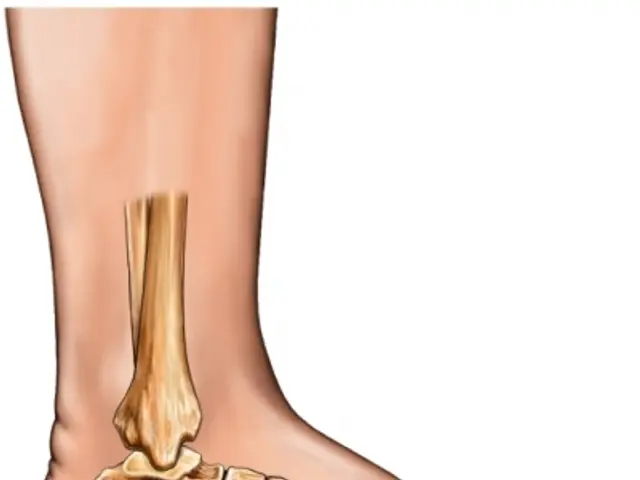Cleanse Your Gut in Three Days: Does a Microbiome Refresh Offer Benefits?
A gut reset, a short-term dietary intervention aimed at improving digestive health, has gained popularity recently. Here's what you need to know about gut resets, their benefits, and potential drawbacks.
Regular exercise and a gut reset can help relieve stress, maintain a moderate weight, and modulate the gut microbiota, which plays a crucial role in breaking down food, absorbing nutrients, and eliminating waste. However, it's essential to approach gut resets with caution, especially for individuals with certain health conditions, pregnant or breastfeeding women, those taking medications, and those recovering from eating disorders.
A gut reset is different from a gut detox or cleanse, which focuses on removing toxins from the body and losing weight. Short-term gut resets may lead to temporary improvements such as better bowel function, less bloating, and reduced gas. However, lasting benefits typically require sustained dietary and lifestyle changes.
Preparing for a gut reset involves eliminating inflammatory foods, planning meals, making a grocery list, and ensuring time for meal preparation, exercise, and rest. The Mediterranean diet, with its focus on healthy fats, vegetables, and fiber, can increase the amount and diversity of beneficial bacteria in the gut.
On the first day of a gut reset, one should eat anti-inflammatory foods such as leafy green vegetables, brightly colored vegetables, fruits, healthy fats, complex carbohydrates, and lean protein, while avoiding added sugars, refined carbohydrates, and foods high in saturated fat.
On the second day, high fiber foods such as lentils, chickpeas, and whole grains can be added to the diet. Fermented foods, which contain probiotics, can be introduced on the final day, along with relaxation techniques and gentle exercise options like walking, yoga, pilates, or tai chi.
It's important to drink plenty of water during a gut reset to stay hydrated, and supplements may contain probiotics but should be used with caution and only after consulting a healthcare professional. Adequate water intake and replacement of caffeine and alcohol with water or herbal teas are essential during the gut reset.
While a 3-day gut reset may offer brief symptomatic relief, meaningful and lasting improvements to gut and overall health appear to require longer-term, comprehensive dietary and lifestyle changes, ideally under professional supervision. Extended dietary programs, whole food supplementation, and sustained gut microbiome support have stronger evidence for long-term benefits than very short gut resets or detoxes.
For example, a 21-day detoxification program with a plant-based diet and whole food supplementation showed measurable long-term benefits like reduced oxidative stress, improved kidney function, less psychological stress, and positive changes in the gut microbiome composition.
Leading experts and organizations caution that DIY or very short gut detoxes can be unsafe or ineffective, and emphasize that medically guided, evidence-based protocols integrated with long-term dietary and lifestyle modifications are crucial for meaningful gut health improvements.
Long-term changes to the diet may have a positive impact on a person's gut health and some chronic health conditions. A doctor or dietician can advise on the best approach for this. It's important to speak with a doctor or dietician before making any sudden dietary changes and let a healthcare professional know about any persistent or troubling symptoms.
In summary, while a 3-day gut reset may offer brief symptomatic relief, meaningful and lasting improvements to gut and overall health appear to require longer-term, comprehensive dietary and lifestyle changes, ideally under professional supervision. Extended dietary programs, whole food supplementation, and sustained gut microbiome support have stronger evidence for long-term benefits than very short gut resets or detoxes.
[1] Source: Harvard Health Publishing, "The truth about detox diets", 2019 [2] Source: Nutrients, "A 21-Day Detoxification Program Improves Kidney Function and Gut Microbiota Composition in Overweight and Obese Adults", 2017 [3] Source: Journal of Gastroenterology and Hepatology, "Elemental diet improves intestinal permeability in patients with irritable bowel syndrome", 2016 [4] Source: American Gastroenterological Association, "The Role of Probiotics in Gastrointestinal Health", 2014 [5] Source: Journal of Functional Foods, "Probiotics and prebiotics in the management of non-alcoholic fatty liver disease: a systematic review", 2016
- A gut reset, targeting digestive health through a short-term dietary intervention, can help manage stress, maintain weight, and improve gut microbiota.
- It's crucial to consider individual health conditions, pregnancies, medications, and eating disorders before embarking on a gut reset.
- Gut resets differ from detoxes or cleanses, focusing on food breakdown, nutrient absorption, and waste elimination.
- Temporary improvements such as better bowel function and reduced gas can result from short-term gut resets, but lasting benefits require sustained dietary and lifestyle changes.
- Preparation for a gut reset includes eliminating inflammatory foods, meal planning, and ensuring time for exercise, rest, and relaxation techniques.
- The Mediterranean diet, rich in healthy fats, vegetables, and fiber, can increase beneficial gut bacteria during a gut reset.
- On the first day of a reset, one should consume leafy greens, brightly colored vegetables, fruits, healthy fats, lean protein, and avoid added sugars, processed carbs, and foods high in saturated fat.
- High-fiber foods like lentils, chickpeas, and whole grains, along with fermented foods and probiotics, are gradually introduced on subsequent days.
- It's essential to stay hydrated by drinking plenty of water, and supplements containing probiotics should be used with caution and consultation with a healthcare professional.
- Long-term dietary changes, ideally under professional guidance, can positively impact gut health and may offer benefits for chronic conditions like arthritis, psoriatic disease, nonsmall cell lung cancer, multiple sclerosis, depression, and sleep issues. A doctor or dietician should be consulted before making any significant dietary adjustments.







